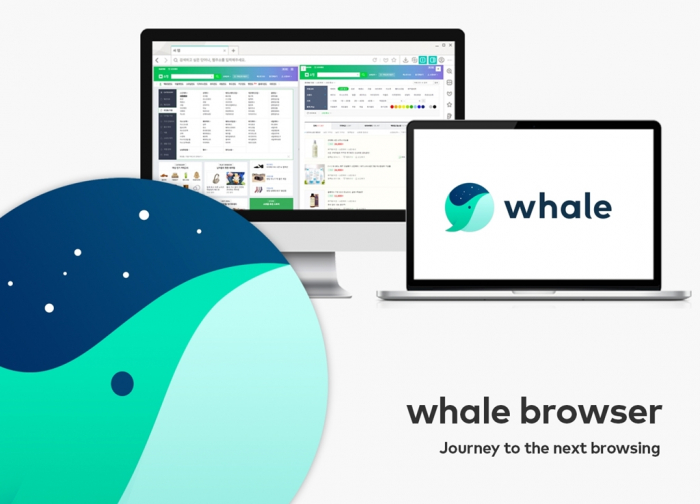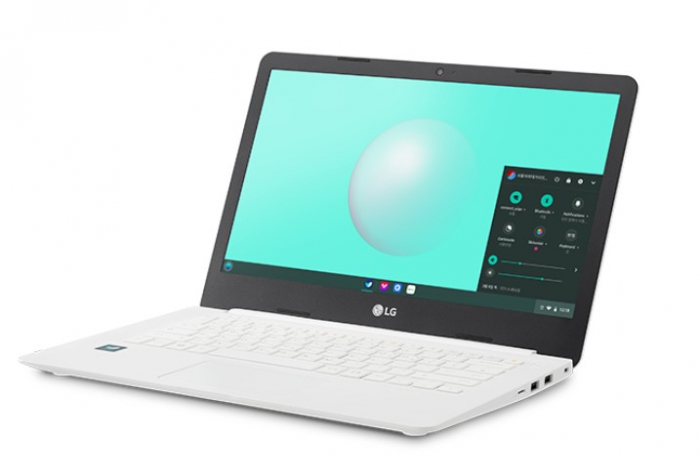Tech, Media & Telecom
Naver targets global edtech sector with Whale browser
The platform giant offers differentiated functions to compete with Google, such as one blocking websites not suitable for children
By Sep 19, 2022 (Gmt+09:00)
3
Min read
Most Read
LG Chem to sell water filter business to Glenwood PE for $692 million


Kyobo Life poised to buy Japan’s SBI Group-owned savings bank


KT&G eyes overseas M&A after rejecting activist fund's offer


StockX in merger talks with Naver’s online reseller Kream


Mirae Asset to be named Korea Post’s core real estate fund operator



Naver Corp., South Korea’s online platform giant, is taking on global heavyweights in its aim to lead the international edtech sector, by providing software platforms and laptops based on its Whale browser in other countries.
Edtech refers to technology designed to improve teacher-led learning in classrooms and enhance students’ educational outcomes.
The sector has seen rapid growth since the outbreak of COVID-19.
Naver wants to entice global teenagers to embrace the Whale operating system as it sees this segment as key to expanding its main businesses such as search, ads and e-commerce worldwide.
The South Korean tech behemoth is seeking to supply Whalespace, a software platform for education based on the Whale browser, and Whalebooks, laptops dedicated to the platform, in three countries – Turkey, one country in North America and another in Southeast Asia – within this year, according to industry sources on Monday.
“The nations targeted by Naver are interested in smart education,” said an information technology industry source in Seoul. “The company will utilize its experience and know-how accumulated at home.”
Naver plans to expand the use of Whalespace and Whalebooks in schools in those countries through cooperation with local education authorities and major service providers. It will help teachers conduct online and offline classes through Whalespace while managing students’ data.
The company has already provided Whalespace, which is linked to various services such as the Whale’s video conferencing solution, to 17 education authorities in South Korea. Last month, it signed a deal with Vietnam’s leading edtech service provider Phenikaa to jointly establish a smart education environment in the Southeast Asian country based on Whalespace and Whalebook.
KEY TO EXPAND CORE SEARCH, ADS BUSINESSES
The global edtech industry has expanded rapidly in recent years, especially since COVID-19 boosted demand for online classes.
The sector around the world is forecast to nearly double to 450 trillion won ($322.7 billion) by 2025 from some 250 trillion won in 2020, according to market research firm HolonIQ.
A leading position in overseas edtech markets is expected to help Naver expand its main businesses such as search, ads and e-commerce worldwide. Naver is focusing on teenagers, who will become key customers in five to 10 years, to become loyal users through Whalespace.
“To raise the Whale browser’s market share, platforms such as the Whalespace and devices including the Whalebook must be widely used,” said another IT industry source. “Naver’s key businesses are expected to gather momentum if the Whale becomes popular.”

UP AGAINST GOOGLE
To realize its goal, Naver will have to go up against global IT giant Google in the world’s edtech sector. Google has been dominating the global market with its Chromebook, a similar device to the Whalebook.
To differentiate itself against the global IT juggernaut in the sector, the South Korean company provides functions, which Google does not have, such as blocking inappropriate websites for children.
Naver also offers a free video-conferencing platform and some 50 solutions for learning developed in cooperation with education service providers. In addition, users can link to Naver’s artificial intelligence service.
Some users including teachers and parents in South Korea said that Whalespace and the Whalebook are better than the Chromebook as Naver immediately corrected any shortcomings of Whalespace and the Whalebook found in the local education sector.
“Naver is emerging as a contender that raises customers’ price bargaining power against Google,” said a Naver source. “We will try to expand in overseas markets based on our experience and know-how.”
Write to Jeong-Soo Hwang at hjs@hankyung.com
Jongwoo Cheon edited this article.
More to Read
-
 Business & PoliticsTrump Jr. meets Korean business chiefs in back-to-back sessions
Business & PoliticsTrump Jr. meets Korean business chiefs in back-to-back sessionsApr 30, 2025 (Gmt+09:00)
-
 Korean chipmakersSamsung in talks to supply customized HBM4 to Nvidia, Broadcom, Google
Korean chipmakersSamsung in talks to supply customized HBM4 to Nvidia, Broadcom, GoogleApr 30, 2025 (Gmt+09:00)
-
 EnergyLS Cable breaks ground on $681 mn underwater cable plant in Chesapeake
EnergyLS Cable breaks ground on $681 mn underwater cable plant in ChesapeakeApr 29, 2025 (Gmt+09:00)
-
 Business & PoliticsUS tariffs add risk premium to dollar assets: Maurice Obstfeld
Business & PoliticsUS tariffs add risk premium to dollar assets: Maurice ObstfeldApr 29, 2025 (Gmt+09:00)
-

Comment 0
LOG IN


